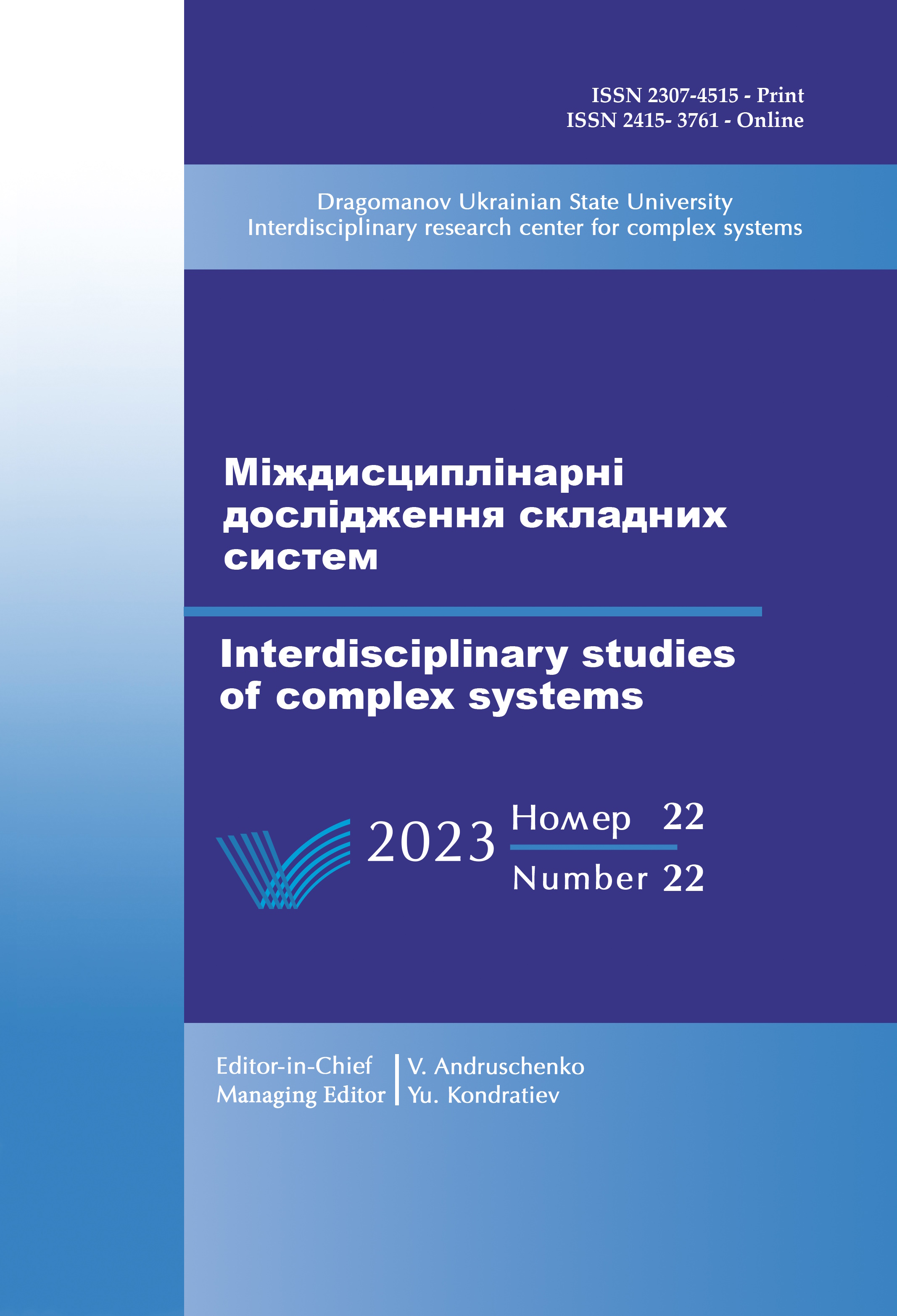MIGRATION PROCESSES AS ATTRIBUTIVE CHARACTERISTICS OF POST-GLOBALIZATION
DOI:
https://doi.org/10.31392/iscs.2023.22.099Ключові слова:
globalization, post-globalization, migration processes, migrants, forced migration, refugeesАнотація
The beginning of the XXI century can be described as post-global. It is conditioned by various and even contradictory events and processes: the legacy of globalisation with the structures of the WB, EU, UN, NATO, which continue to function today, but, as the present shows, need to be modernised in view of the international relations of the modern times; mass migration, which significantly affects the development of local economies in particular, as well as the geo-economy in general, the "brain drain" and "brain gain" in certain regions of the world. These processes also have a significant impact on socio-cultural processes, namely acculturation.
The scale of migration processes at the present stage of world development requires clarification of their content, causes and consequences, since they have a significant impact on all spheres of human and social life. The article determines that the defining characteristics of migration processes are socio-economic, military, environmental, religious, demographic, political, ethnic, educational, moral and psychological, etc.
The article focuses on such a type of migration as forced migration. It is generally accepted that migration is a purely personal choice, however, forced migration is a consequence of events and processes that a person is unable to influence or change. The authors of the article note that the processes of forced migration from Ukraine, which are a consequence of the Russian-Ukrainian war, need to be carefully studied to minimise the consequences, as the scale is catastrophic. According to the UN Refugee Agency, 7.9 million people have fled Ukraine, and 5.9 million have become internally displaced. The main reason for the displacement of people was the security situation. Of course, the vast majority of citizens have returned to Ukraine, but residents of the areas close to the hostilities are still living and will continue to live outside their homes for a long time, as much of the living space in these regions has been destroyed. The authors state that it is necessary to develop mechanisms and conditions for the return of citizens. It is necessary to use the education and skills acquired abroad and adapt them to the realities of our own society in order to create new prospects for its further development in the political, socio-economic, religious and cultural spheres.
Посилання
. Bauman, Zygmunt. 2008. Globalisation. Consequences for man and society / translated from English by I. Andrushchenko; under the scientific editorship of M. Vynnytskyi. Kyiv : Kyiv-Mohyla Academy Publishing House, 109 p. ISBN 978-966-518-456-0
. Ukrainian society: migration dimension: national report 2018. / M.V. Ptukha Institute of Demography and Social Studies of the National Academy of Sciences of Ukraine. – Kyiv, 396 p. ISBN 978-966-02-8723-9
. Featherstone M. 2013. Global modernities / M. Featherstone, S. Lesh, R. Robertson [translated from English by T. Tsymbal]. Kyiv : Nika-Centre, 400 p. (Series "Zmina paradyhmy"; Issue 12).
. Beck, Ulrich. 2007. Was ist Globalisierung? Verlag: Suhrkamp. 267 р. ISBN 978-3-518-45867-9
. Flew T. 2020. Globalisation, neo-globalisation and post-globalisation: The challenge of populism and the return of the national. Global Media and Communication, Vol.16. Output 1. P. 19 39. Doi 10.1177/1742766519900329.
. Robertson R. 1992. Globalisation. L., Р. 145.
. Woters M. 1996. Globalisation. L.; N.Y. : Routledge, Р. 185.
. PEOPLE FORCED TO FLEE More details: UNHCR Operational Data Portal Ukraine Refugee https://data.unhcr.org/en/situations/ukraine
. Iryna Utiuzh, Nataliia Kovtun, Svitlana Hrebin, Fedir Vlasenko, Valeriia Volkova. 2023. The Evolutionary Mechanisms for Tolerance and Social Humanism Development in Education and Medicine: A Post-Capitalist Discourse. Wisdom. 1(25). P. 107 117.
##submission.downloads##
Опубліковано
Номер
Розділ
Ліцензія
Автори, які публікуються у цьому журналі, погоджуються з наступними умовами:- Автори залишають за собою право на авторство своєї роботи та передають журналу право першої публікації цієї роботи на умовах ліцензії Creative Commons Attribution License, котра дозволяє іншим особам вільно розповсюджувати опубліковану роботу з обов'язковим посиланням на авторів оригінальної роботи та першу публікацію роботи у цьому журналі.
- Автори мають право укладати самостійні додаткові угоди щодо неексклюзивного розповсюдження роботи у тому вигляді, в якому вона була опублікована цим журналом (наприклад, розміщувати роботу в електронному сховищі установи або публікувати у складі монографії), за умови збереження посилання на першу публікацію роботи у цьому журналі.
- Політика журналу дозволяє і заохочує розміщення авторами в мережі Інтернет (наприклад, у сховищах установ або на особистих веб-сайтах) рукопису роботи, як до подання цього рукопису до редакції, так і під час його редакційного опрацювання, оскільки це сприяє виникненню продуктивної наукової дискусії та позитивно позначається на оперативності та динаміці цитування опублікованої роботи (див. The Effect of Open Access).











